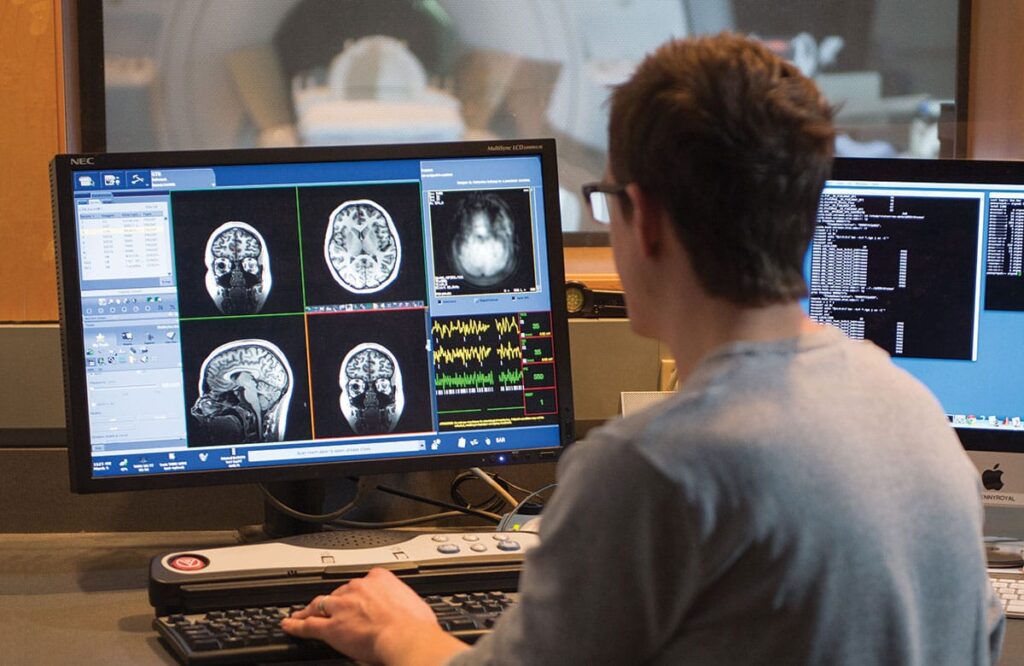Welkom bij de Mindfulness.nl database voor wetenschappelijk onderzoek. Hier laten we overzichtelijk de wetenschap achter mindfulness zien. Deze database verzamelt slechts een deel van de schat aan onderzoek, gegevens en ervaring rond de implementatie en effectiviteit van mindfulness.
Klik door naar de onderstaande collecties om individuele bewijsstukken en onderzoek te bekijken.



De wetenschap achter mindfulness
Mensen die mindfulness beoefenen, zeggen dat het de manier waarop ze het leven ervaren fundamenteel verandert. De afgelopen 40 jaar hebben onderzoekers geprobeerd dit in biologische termen te verklaren. Studies tonen aan dat mindfulness angst en depressie kan verminderen, je immuunsysteem kan stimuleren, je kan helpen pijn te beheersen, je kan losmaken van ongezonde gewoonten en verslavingen, slapeloosheid kan verzachten, hoge bloeddruk kan verlagen en zelfs de structuur en functie van je hersenen in positieve zin kan veranderen- zelfs in slechts 8 weken van beoefenen.
Volgens neurowetenschappelijk onderzoek dempen mindfulness-oefeningen de activiteit in onze amygdala en vergroten ze de verbindingen tussen de amygdala en de prefrontale cortex. Beide delen van de hersenen helpen ons om minder reactief te zijn op stressoren en om beter te herstellen van stress wanneer we die ervaren.
De meest gerespecteerde wetenschappers die de effecten van mindfulness-praktijken bestuderen, benadrukken dat het onderzoek in vergelijking met veel andere gebieden nog in de kinderschoenen staat. Het zal jaren en decennia duren voordat er voldoende peer-reviewed onderzoek is met actieve controles en lange tijdsbestekken om harde bewijzen van voordelen vast te stellen. Dat gezegd hebbende, het veld is in opkomst en het onderzoek ziet er veelbelovend uit.
Mindfulness based interventies
Mindfulness-meditatiestudies kwamen al in 1982 uit de Stress Reduction Clinic van Dr. Jon Kabat-Zinn in het UMass Medical Center. Sinds die tijd hebben meer dan 25.000 mensen zijn baanbrekende meerweekse programma voltooid, dat bekend kwam te staan als Mindfulness-Based Stress Reduction (MBSR), waarin ze leren hun vermogen op te bouwen om te reageren op stress, pijn en zelfs chronische ziekten.
Kabat-Zinn paste de basisprincipes van mindfulness-meditatie toe op patiënten in een medische setting en zijn werk bij het ontwikkelen van het MBSR-programma bleek effectief in het helpen verlichten van het lijden van chronische en voorheen slopende medische aandoeningen zoals chronische pijn. Het diende ook als een vruchtbare voedingsbodem voor een systematische reeks onderzoeksonderzoeken in samenwerking met een van de grondleggers van het veld van affectieve neurowetenschappen, Richard Davidson van de Universiteit van Wisconsin in Madison. MBSR is de gouden standaard geworden voor onderzoek naar op mindfulness gebaseerde interventies.
In 1992 werkten Zindel Segal, John Teasdale en Mark Williams samen om een programma van acht weken te maken, gebaseerd op MBSR. In 2002 publiceerden de drie Mindfulness-Based Cognitive Therapy for Depression: A New Approach to Preventing Relapse, nu een mijlpaalboek.
De geloofwaardigheid van MBCT rust stevig op lopend onderzoek. De belangrijkste daarvan zijn twee gerandomiseerde klinische onderzoeken (gepubliceerd in 2000 en 2008 in The Journal of Consulting and Clinical Psychology) waaruit blijkt dat MBCT het percentage terugval met 50% vermindert bij patiënten die lijden aan terugkerende depressie. Recente bevindingen, gepubliceerd in The Lancet, tonen aan dat het combineren van een afbouw van medicatie met MBCT even effectief is als een doorlopende onderhoudsdosering van medicatie.
